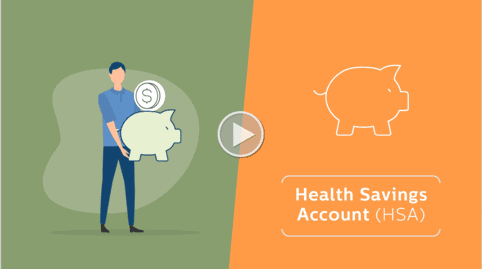Health Savings Account (HSA)
When you enroll in the High Deductible Health Plan and meet the eligibility requirements, you may open a Health Savings Account (HSA) to help you pay for current out-of-pocket health care costs or save for future expenses – even into retirement. Optum is our HSA administrator.
What Is an HSA?
An HSA is a health care savings account that gives you a triple tax advantage.
1. You contribute pre-tax dollars.
2. You pay for eligible expenses tax-free.
3. Unused funds can be invested and grow interest tax-free.
What Are the Benefits of an HSA?
- Ownership: HSA funds roll over from year to year. You own the account and can take it with you if you leave the company or retire.
- Reduced Costs: The tax-free HSA funds you use can help you meet your plan’s annual deductible. You can also use your HSA funds to pay for the eligible health care expenses of your spouse and eligible dependents.
- Investment Options: Once your HSA hits a minimum balance, you can invest the money in a variety of mutual funds to grow tax-free interest that can be used for future health care costs.
How Do I Use My HSA?
Using your HSA is easy. Simply use your HSA debit card to pay for eligible health care expenses up to the amount available in your account. You can also arrange for payment online or reimburse yourself for eligible expenses you paid out-of-pocket.
Eligible expenses include medical, dental and vision deductibles, coinsurance and copays and prescription drugs costs.
If you use your funds for ineligible expenses, you will be subject to penalties and taxes. After age 65, you can use the funds for any purpose penalty-free.
Who Is Eligible for the HSA?
You are eligible to open an HSA if you meet the
requirements defined by the IRS below:
- You are covered under a High Deductible Health Plan and have no other health coverage (unless it is an HDHP).
- You or your covered spouse do not participate in a Health Care Flexible Spending Account.
- You are not enrolled in Medicare or Tricare.
- You are not claimed as a dependent on someone else’s tax return.

